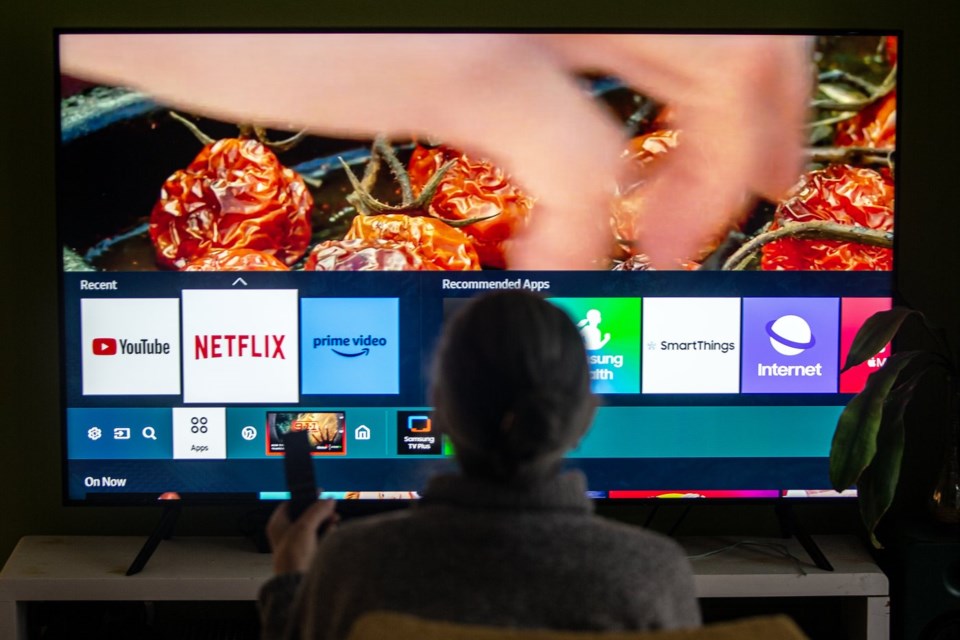OTTAWA — The federal broadcast regulator is considering whether it should include a "cultural element" in its new definition of Canadian content.
Appearing before a Canadian Radio-television and Telecommunications Commission hearing Tuesday, the Public Interest Advocacy Centre said the CRTC should instead stick to its current approach, which looks at whether Canadians are employed in key creative positions.
The consumers’ group pointed out that the United Kingdom has a special institute to review and assess whether proposed cultural references in a production qualify as "sufficiently British."
"We view a potential Canadian application of this approach, or any other cultural elements test, where a small group of people would be attempting to objectively define what and who is culturally Canadian, as being highly problematic," the advocacy centre said in a written copy of its opening statement.
It also warned that production companies could exploit Canadian stereotypes to get around any "cultural element" test.
"An American portrayal of how a Canadian character would speak or behave, for example, cannot be considered Canadian content," PIAC said. "It is merely a representation of the American cultural view of Canada."
The CRTC's vice-chair of telecom, Adam Scott, asked the PIAC representatives whether Canadians wouldn't consider a miniseries about former prime minister Wilfrid Laurier to be more Canadian than one about former U.S. president Thomas Jefferson.
Public interest articling fellow Aya Alshahwany responded by citing the hypothetical example of a big U.S. streamer making a movie about pop star Justin Bieber without any Canadians taking part in the production.
"Using that to say, well, we made a documentary about a Canadian, this is CanCon now, I would have a really hard time digesting that as a Canadian to say, well, this is a reflection of my culture," she said.
The CRTC has said that while it’s leaning away from including a cultural element in its content test, it's open to hearing other viewpoints during the two-week hearing.
The broadcast regulator has heard from others during the hearing who are in favour of including culture in the modernized definition of CanCon.
The National Film Board, which appeared at the hearing Friday, has argued that now is the time to include cultural elements in the definition of Canadian content.
It said in its prior written submission that not having a cultural element in the definition could result in harmful long-term consequences and risks erasing "what makes us who we are."
It pointed to cultural tests used in countries such as Australia, France, Italy and the U.K.
"These countries employ cultural elements alongside other criteria, such as nationality of key creative roles and ownership," the NFB said. It said those cultural elements include social or political relevance, how a way of life is depicted, and recognizable locations or figures, among others.
"Our national screen culture has long operated on a definition of 'CanCon' that has excluded cultural elements. This approach has contributed to Canadians’ inability to recognize when a story is of us," the NFB submission argues.
The CRTC, which is looking at ways to modernize the definition of Canadian content, has heard differing points on how big U.S. streamers should contribute to the system.
Netflix, Paramount and Apple pulled out of the hearing on the first day, and Motion Picture Association-Canada, which represents Netflix, Paramount, Disney and Amazon, argued foreign streamers shouldn't be expected to fulfil the same responsibilities as traditional broadcasters when it comes to Canadian content.
The CRTC has ordered streaming services to pay five per cent of their annual Canadian revenues to a fund devoted to producing Canadian content. Multiple streaming services have launched legal challenges against that rule. Apple, Amazon and Spotify asked for and were granted a pause on their payments until the court process plays out.
On Tuesday morning, U.K.-based sports streaming service Dazn told the hearing it shouldn't have to pay.
Deidra Dionne, Dazn's vice-president in Canada, said such requirements are "not appropriate for international sports services" and make Canada an international outlier.
"Our senior leadership continue to contemplate if the levies imposed make prioritizing growth in Canada a priority," she said.
Geoff White, the executive director of the Public Interest Advocacy Centre, who appeared after Dionne, took aim at Dazn and the other streamers in his remarks.
"I just think there's an arrogance from the foreign streamers in terms of not showing up and arguing how their business models are so complicated and so different," he said.
White urged the CRTC to "have that moral courage to stand up to the foreign streamers."
This report by The Canadian Press was first published May 20, 2024.
Anja Karadeglija, The Canadian Press



